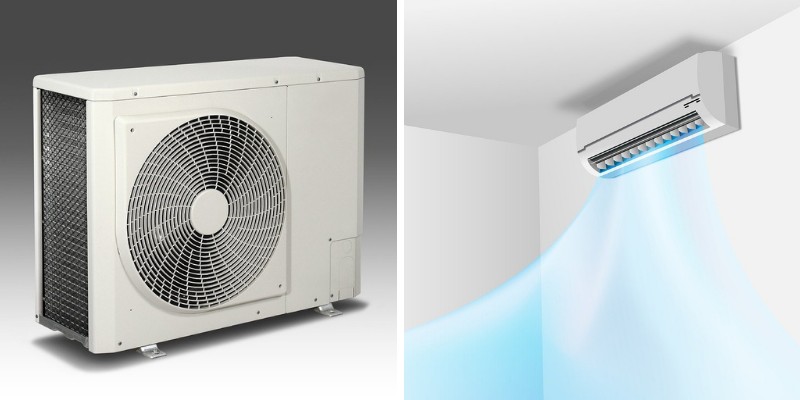If you are preparing your home for the summer season, one of the major aspects you should consider is your air conditioning. Can you imagine what you’d feel if your AC unit breaks down on a hot summer day? That would be uncomfortable and inconvenient.

Additionally, if your home does not have proper ventilation, staying inside for long periods can lead to health issues such as dehydration, heavy sweating, nausea and dizziness, muscle cramps, and heat exhaustion.
In some cases, it can also cause loss of sleep and affect your ability to focus so that you won’t do your job well.
So, if you are determined to keep your home comfortable and cool enough for the summer season, you should keep your AC unit regularly and properly maintained.
If your air conditioning has been with you for years, you may want to replace it with a new one. You may have to spend, but it will be for a good reason. Most of the new models are high-efficiency units, so it’s a guaranteed investment.
A high-efficiency air conditioning unit may be a little bit more expensive to purchase, but it is energy-efficient and can significantly reduce energy costs.
According to the DoE or U.S. Department of Energy, energy-efficient AC units can reduce your electricity bill and help you save at least 40%.
High-efficiency air conditioning units can easily adjust temperatures because of HVAC control systems designed to measure room temperature and compare this to the one that you set. This is one of the ways that HVAC or air conditioning units can improve efficiency and lower energy costs.
What makes an AC unit highly efficient?
SEER, or Seasonal Energy Efficiency Ratio, is used to measure the efficiency of your AC unit. A high SEER ratio is an indication that the air conditioning unit is efficient. So, the higher the ratio, the more efficient it is.
High-efficiency AC units typically have an Energy Star label as an indication of their efficiency level. Based on the DoE’s regulations, the minimum SEER ratio is 14, while the higher efficiency units should have a SEER score of 21-22.
Even if AC units with high SEER scores can be more expensive, you can still save money because they can cool your room or home by at least 30% more than lower-rated ACs.
Is a high SEER score the only thing AC units need to be highly efficient?
Aside from the SEER score, it is also important to consider other factors needed for your AC unit to be highly efficient.
You need to know what kind and size of air conditioning you need for your home. Getting a large unit does not necessarily mean your room or home will be cooler. In most cases, larger units will cost you more because they’re not easy to install and manage.
Find a professional AC or HVAC specialist to help you choose the right unit.
Other factors that can affect your unit’s efficiency include the home’s layout, the climate in your area, sun exposure, and insulation.
Warmer climates need higher SEER scores. Homes with poor insulation won’t do your unit’s efficiency rating any good.
This is why you need the experience and expertise of an AC specialist. Whatever the insulation issues in your home, you can improve them before installing your high-efficiency air conditioning unit.
What do I need to do before installing a new, more efficient AC unit?
Before installing a high-efficiency air conditioning unit, ask a professional to perform an energy efficiency test on your home.
This will help you determine what changes are needed to find the high-efficiency AC unit that best suits your room or home.
A high-efficiency air conditioning unit is good for your home, especially in the hot summer months. Work with an experienced, reliable, and professional AC specialist to ensure that you choose the right unit.
About the author
Rachel Watson is the Senior Content Editor of New AC Unit. Aside from heading the company’s content marketing strategies, she writes articles about how to stay fit and energy-efficient home living.
Related Posts
- How to Stop Sliding Doors from Rattling – Causes and Solutions
- Cheap Ways to Heat a Room – Efficient and Budget-Friendly Solutions
- 11 Ways to Get Rid of Cooking Smells in a Small Apartment or House
- 11 Stores and Sites Like IKEA For Affordable Furniture and Home Products
- All About Polypropylene – Olefin Fabric Sofa Material
- 12 Different Types of Wood for Outdoor Furniture with Pros/Cons
Leave a Reply